Innovation Road Trip: In Tiny, Impoverished Louisiana Town, School Is ‘a Home-Like Environment You Want to Be a Part Of’
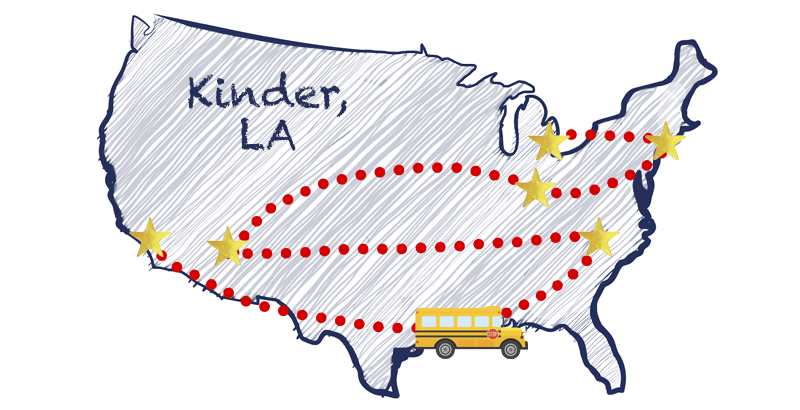
This is the third piece in a new travel blog series on The 74, in which the Knowledge Matters Campaign, part of StandardsWork, will take us on an adventure through classrooms across the country. Sign up for The 74’s newsletter to learn about new installments, and see the full developing series here.
Kinder is a tightly knit 2,400-person community in western Louisiana. The biggest monument in the area is the Coushatta Casino Resort, where many of the local residents work.
Of the nearly 1,000 students enrolled in the town’s two public schools, about 60 percent are classified as low-income. The median household income in Allen Parish, the county in which Kinder resides, is $41,801, according to the 2012–16 American Community Survey. That figure is even lower in Kinder itself.
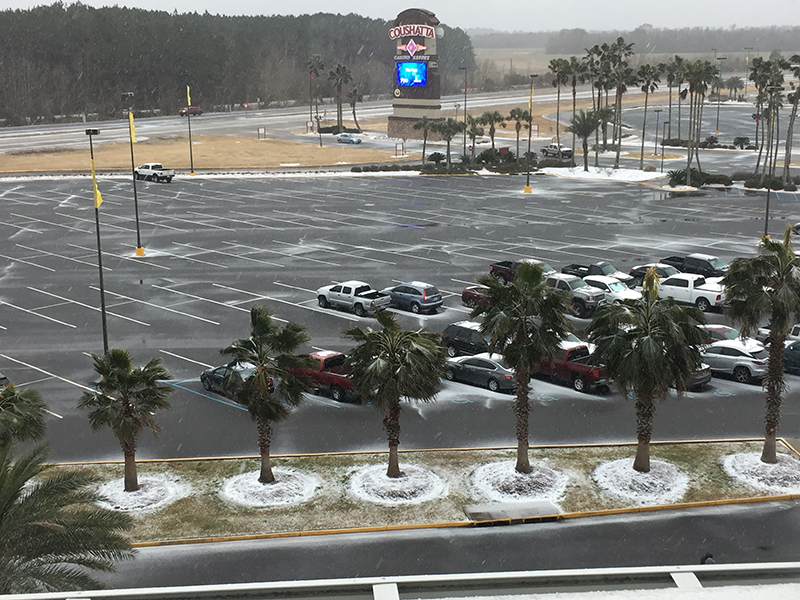
Yet in this unexpected place, something remarkable is happening educationally. Using a teacher-written, knowledge-rich curriculum called the Louisiana ELA Guidebooks 2.0, students at Kinder Elementary School are becoming passionate experts and independent thinkers.
For much of the time that we visited, schools were closed due to an ice storm. But sitting in the lobby of the casino restaurant, instructional coach Jade Welch, parent Chasidy LaFargue, and her son Mason told us why they love their school.
“It’s a very home-like environment,” Welch said.
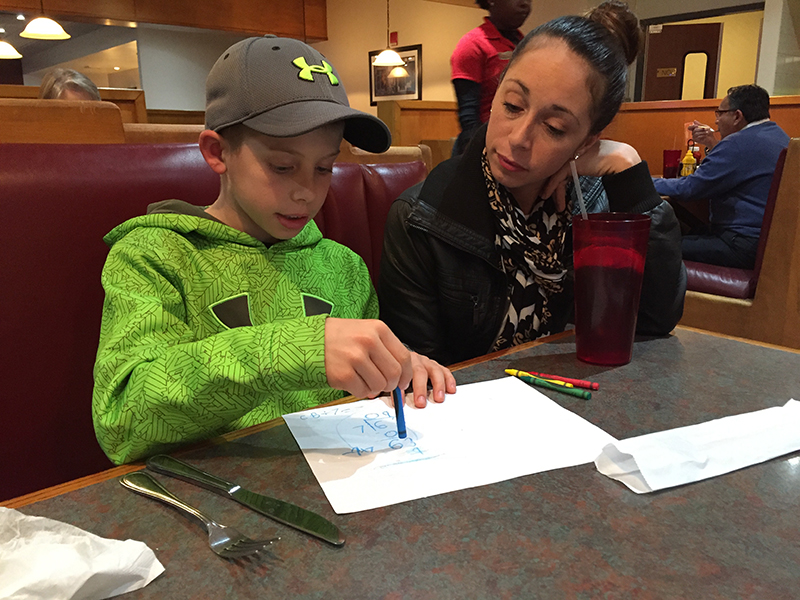
LaFargue enjoyed visiting Kinder Elementary so much that she started working as a substitute teacher.
“It’s like a big group you want to be part of,” she said. “The friendships you get from these women — they are learning, you are learning.”
To be sure, Kinder is in the early stages of its growth and development, and there’s still much more work to do. But this theme of learning together in a community flows from administrators to teachers, to students, to parents — and connects directly to the school’s success in using a new and challenging curriculum.
“If we didn’t have a culture of collaboration in place before Guidebooks, we would have drowned,” Assistant Principal Jennifer Doucet said.
But the best description of the school comes from 9-year old Mason.
“It’s pretty much like a regular school. It’s fun and you learn a lot,” he said.
Mason’s favorite unit was the American Revolution, and he readily rattled off information about the Stamp, Sugar, and Quartering Acts; the Founding Fathers; and why he would have been a Patriot and not a Loyalist. But he is equally knowledgeable about frog adaptations. In his teacher Miss Hannah’s class, students prepared for a unit on The Whipping Boy by reading informational texts about the Middle Ages — from dietary habits to the treatment of soldiers to the design of castles. The students love it.
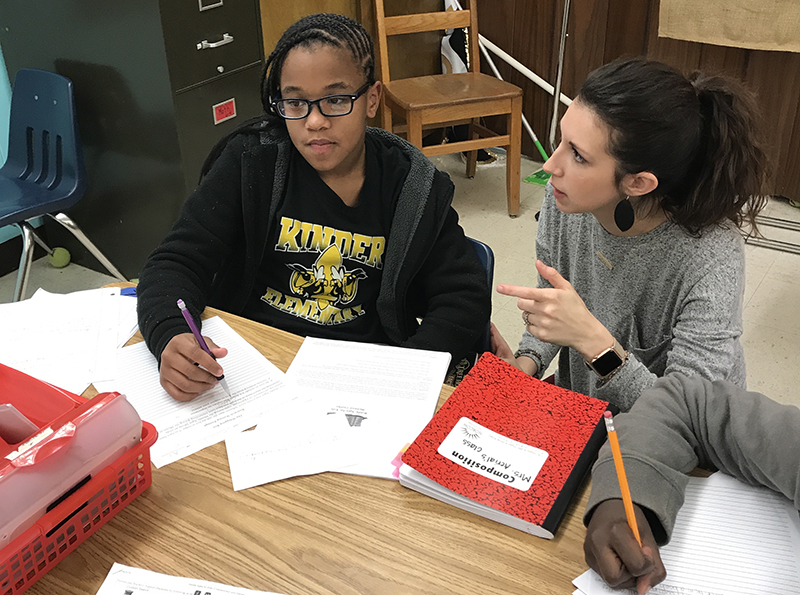
This curriculum and instruction didn’t happen by accident. A strong local-control state, Louisiana supported local teachers in writing and revising the Guidebooks as a free online curriculum that any district in the state has the option to use. Nearly 80 percent of districts now use them. Guidebooks’ use of complex texts to build knowledge of topics supports the enthusiastic discussion we observed.
First-grade teacher Carley Chaumont echoed this observation, sharing that she appreciated the complexity of the [Guidebooks’] texts because she “could engage deep questions and have rich discussions with her kids.”
This engagement isn’t limited to only Miss Carley’s more affluent students.
“The texts in Guidebooks are so engaging to students, I don’t see a difference in our students based on background,” she told us.
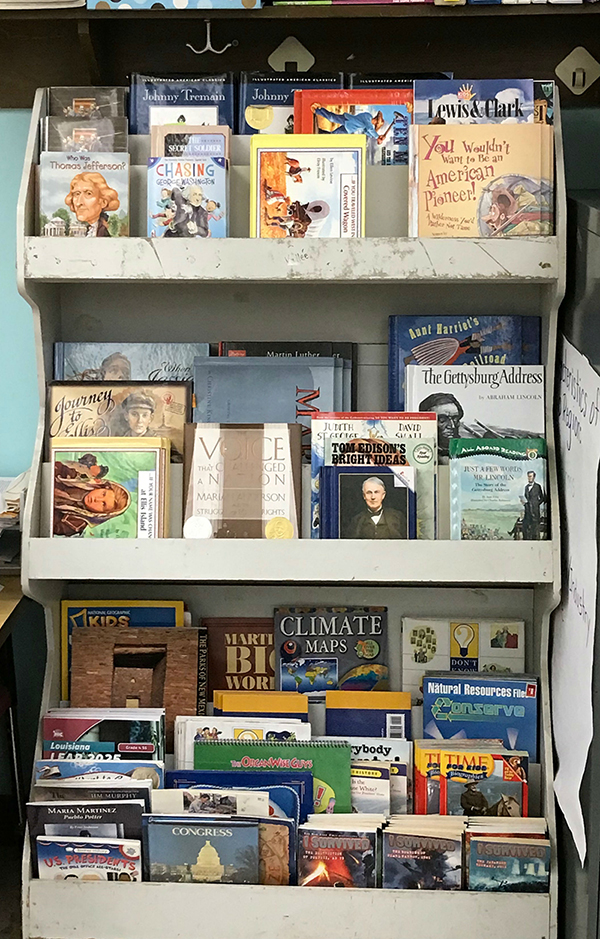
Indeed, the curriculum was intentionally designed to build knowledge to support access for all students in order to close the achievement gap.
To use Guidebooks or another knowledge-rich curriculum, professional development specific to that curriculum is key, said Stephanie Perry, curriculum and instructional support supervisor for Allen Parish School Board.
District leadership has supported building teachers’ knowledge and ability to use the curriculum by participating in a statewide “Content Leaders” training. Getting the teachers thinking has gotten the students thinking, school leaders say. To support the use of this more rigorous curriculum in schools, teachers collaborate for one hour per day; even administrators have their own collaborative planning group.
“This is a learning journey for me,” Chaumont told us. “Be a learner yourself. Have an open mind.”
Disclosure: Content Leader training has, in part, been developed by Teaching Lab, a nonprofit for which the author is executive director.
Silas Kulkarni is executive director of Teaching Lab, leading powerful professional learning experiences in school districts around the country by applying lessons learned as a record-busting middle school teacher in Washington, D.C., and New York City.
Get stories like these delivered straight to your inbox. Sign up for The 74 Newsletter

;)